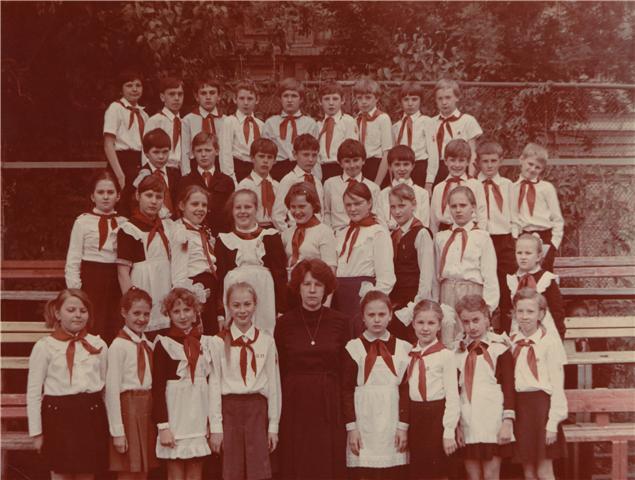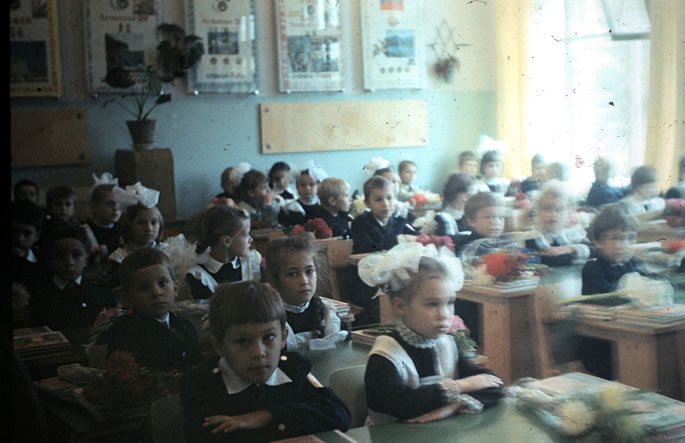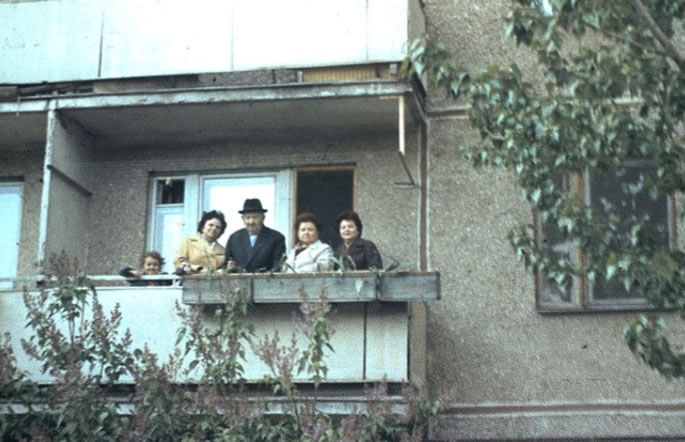As we celebrate the holiday of Passover and remember the Exodus from Egypt, I often wonder if the emotional pain of the Jews was amplified by the fact that the Egyptians, their neighbors, turned against them.
Joseph was the second in command after Pharaoh, the vice president of the greatest empire of the time. The Jewish people shifted from having the respect of being Joseph’s family to the life of torture and enslavement. I wonder how this transition affected the youth, whose grandparents were the most honored members of Egyptian society, while they were quickly becoming slaves to their own peers. How could the entire population betray our nation?
The word “betrayal” brings back a painful memory of one particular day in my childhood. When I was almost 13 years old, my family immigrated to the United States from the former Soviet Union. Leaving the country right after the collapse of the Communist empire was a pioneering and a dangerous decision.
My visionary parents felt that my brother and I deserved a better future than what our birth county had to offer. They braved the uncertainty of moving the family through two refugee camps in Austria and Italy on the way to the United States, hoping to rebuild our lives in an environment of freedom.
When my parents made the decision to immigrate, they shared the secret plans with me, making me feel important, mature and trustworthy. This type of knowledge was dangerous because once information about immigration became official, the Soviet government labeled these people traitors, and informed their workplaces and schools, leading possible loss of jobs, and expulsions from schools and universities.

We were one of the first families to leave the city of Saratov in September of 1989. Every year on Sept. 1, all Soviet children start a new school year, bringing flowers to their teachers and marching in unison to Communist propaganda. On Aug. 31, 1989, I was playing outside with my classmates since most of them lived in three huge apartment buildings close to our school. I knew that I would not be going the next day.
It was best to keep a low profile before our departure. When I didn’t come to school the next morning, my classmates were surprised, but not for long. Our teacher lined up the entire student body in the gym of the school and announced that there was a terrible betrayal committed by a two-faced, filthy Jewish student. This teacher was known for her anti-Semitic character and cooperation with the KGB.
There was a collective shock. It was clear that she was talking about me—one of the very few Jewish children in school. Since many of my friends saw me just the night before, it was hard for them to believe that I was in fact that terrible threat to the Soviet society. Yet after her long monologue about my family’s deplorable character and Jewish untrustworthy behavior towards the Soviet Union, my childhood friends were convinced that my family spent years lying to Soviet comrades and only pretending to be loyal.
That day, the entire class marched to my front door with sticks and a bucket of brown paint, seeking revenge. To this day, I don’t know what my seventh-grade classmates planned to do, yet I can still hear their banging on the door and screaming terrible insults.
I was home with my mother and my little brother. My mom was very nervous when she heard the initial pounding on the door. She was home alone with two young children two weeks before leaving the Soviet Union forever, and with her heart pounding, she ran to look into the peephole. When she realized what was happening, she took us into the bedroom and closed the door so we wouldn’t hear the banging and screaming.
After some time, the noises stopped. When my father came home, he was surprised to see the ugly brown smears all around our apartment door.

I was so shaken up that I could not breathe. These were my childhood friends who came to hurt me because I was now their enemy. At that time, we had a good suspicion of what had transpired, and a few days later, some teachers who respected my family shared the exact story.
It’s hard to describe how much this incident affected my self-confidence and self-perception. These were my friends, my childhood friends. Even though 30 years have passed, I still very much dislike the color brown.
I never saw these classmates again, though this story does have closure and a surprising ending. So much has happened to that 12-year-old frightened child. In a way, I can understand why they were so furiously confused about the decisions of my family. To them, I was rebelling against all the norms of a Soviet upbringing.
I cannot deny the pain of that memory, but ever since then I haven’t stopped breaking my own barriers. I was chosen and I choose to live outside the box. Despite 70 years of almost complete assimilation due to the oppression of a Communist regime, I broke the norm yet again by finding my way back to Torah values and my Jewish heritage.
But let me return to the story of my classroom teacher. Twenty years ago, after my husband and I married, we went on a business trip to the former Soviet Union. We decided to make a short visit to Saratov, the city of my birth.
I was surprised to see that the light-green apartment door was still covered with the splashes of brown paint. It felt like my apartment door never recovered from that horrific beating of my self-image. I stood there, a grown woman looking at the old paint, grieving my lost friendships. “This too shall pass,” teaches King Solomon, the wisest man that ever lived. He was right. Everything passes, but our experiences carve a clear pathway in our lives.
Afterwards, my husband and I decided to visit my former school. It was summertime; and classes were not in session, but the doors were open. The cleaning lady asked if we were there to see the principal, Tatyana Gregorevna (in Russian culture, people are referred to by their patronymic).
I was shocked because this was the name of my classroom teacher, responsible for the terrible accusations that led to the betrayal of my friends all those years ago.
We walked into a big office where the principal was doing paperwork. She looked up, and I immediately recognized her. She looked at me as if I came back from the dead. Stunned, she tried to walk towards me, her legs shaking. I was no less shaken than she was.
I tried to compose myself. “Do you remember me?” I asked.
“Sonichka Rabovetsky!” she blurted out.
She specifically said my Russian first name in a very endearing format. “When you left, we missed you so much. It was so sad for the class.”
I couldn’t believe the audacity of this anti-Semitic woman. All the emotions of that day became unleashed. I looked right into her eyes and said, “You are lying to me. I know that you lined up the entire school and told everyone that my family were filthy Jews, and that I had never been a real friend to my classmates. How could you? I was 12 years old! My parents made that decision, and while I feel incredibly grateful now, then I didn’t understand why we were leaving the only country that I knew and called home.
“I know that you turned my entire class against me, and they came to bang on my door after school, trying to hurt me. You are an evil human being who should have never been allowed to work with children.”
She held onto the desk and said, “Times were very difficult then. I was told by the authorities that I need to explain your family’s immigration to the students.”
True, she did need to address the school body, but no one forced her to be so ambitious about it. I felt nothing but disdain for this anti-Semitic person.
“I will not be able to sleep now,” she said as I walked to the door with my stunned husband.
“After what you did, I didn’t sleep for years.” I told her as I left.
When I read about the Egyptian torment, I always think of this cruel woman—her words as sharp as spears, piercing my 12-year-old heart. While our challenges are decreed upon us, it is the joy with which our enemies torture us that makes them evil. The joy of our slave masters in Egypt made the enslavement even more unbearable. Yet our Creator expects from us nothing less than sensitivity towards the destruction of our enemies.
We saw the Egyptians drown while we walked into the splitting sea. Nevertheless, our Creator didn’t want us to rejoice in anyone’s well-deserved defeat by singing the song of victory. As history unfolds, we, the Jewish people persevere over and over again with G‑d rescuing us from the darkness of both national and personal despairs.
As I celebrate Passover—the holiday of victory against enslavement—I try to gain a new perspective of the day my classroom teacher forever ruined my childhood friendships.
Perhaps it is not her defeat that I choose to focus on, but the victory of my family and my nation. We celebrated our newly gained freedom while our enemies were suffocated by their own anti-Semitic poison of hate.
I learned from this episode not to flatter our enemies by focusing my life on revenge, but rather to march forwards, cleaving to our Creator, and to build, create and shine the Light.
Am Israel chai.

